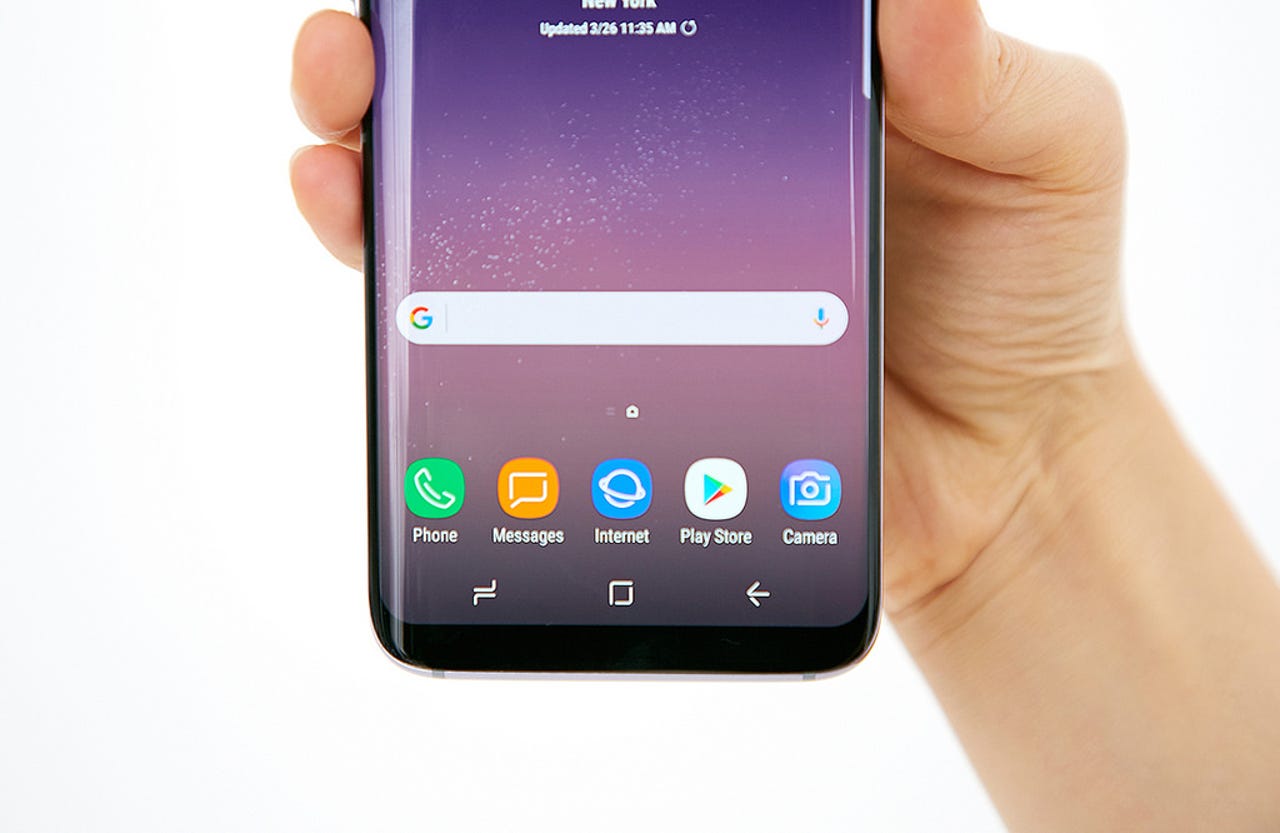Samsung Pay arrives in UK: Can it catch up with Apple Pay and Android Pay?


Would you pay with your smartphone?
Samsung's mobile payment system, Samsung Pay is coming to the UK, but will face stiff opposition from Apple and Google, which already offer similar services.
Samsung's pay-by-smartphone service works with the new Galaxy S8 and S8+, Galaxy S7, and S7 Edge and -- after a software update -- with the Galaxy S6 and S6 Edge handsets. Additional devices will get Samsung Pay support "in the coming months," said the company.
To use Samsung Pay, smartphone owners add their credit card details into the app and then use their device to make payments in the same way they would with a contactless card.
When setting up a credit card on Samsung Pay, a digital token is generated that's then stored on a secure server. The token is different from the actual card number, and is also specific to the device. You can choose to use the iris scanner on the Galaxy S8, or a PIN or fingerprint to authorise purchases, all of which improves security, said Samsung.
Samsung Pay supports Mastercard and Visa and cards issued by MBNA , Nationwide, and Santander. Samsung said that more companies would be joining soon, including American Express, First Direct, HSBC, and M&S Bank.
Smartphone companies are keen to push mobile payments because it makes consumers more loyal to their brands, and also opens up potential new revenue streams. So far consumer interest has been limited, mainly because mobile payment services do pretty much the same as a contactless card, with the additional disadvantage that you can't make payments if your smartphone's battery is flat.
Photos: Android through the ages
Chasing payments
Samsung is entering the UK payments market significantly later than its rivals Apple (which launched Apple Pay here in 2015) and Google (whose Android Pay arrived in 2016). This presents challenges for Samsung Pay, said Ruomeng Wang, mobile analyst at IHS Markit. But opportunities still exist.
One opportunity is that Samsung Pay supports both NFC and Magnetic Secure Transmission (MST) features in the UK, which may give it an edge over Apple and Google. MST emits a magnetic signal that mimics the magnetic strip on a traditional payment card, which means Samsung Pay users should be able to make contactless payments on both traditional and NFC-enabled tills.
Samsung Pay will face strong competition from Android Pay in the UK, said Wang, because unlike Apple Pay, which only works on Apple devices, Android Pay is compatible with both Android and Samsung handsets.
"This means Samsung must spare no effort to develop partnerships with local banks, financial institutions and merchants to drive adoption by Samsung users, which includes converting those who are using Android Pay," the analyst said.
Although Samsung Pay is a late starter in the UK, it has a wider global availability than Apple Pay and Android Pay: Samsung has launched Samsung Pay in 18 international markets, whereas Apple Pay is available in 15 markets and Google has so far rolled out Android Pay in 10 markets.